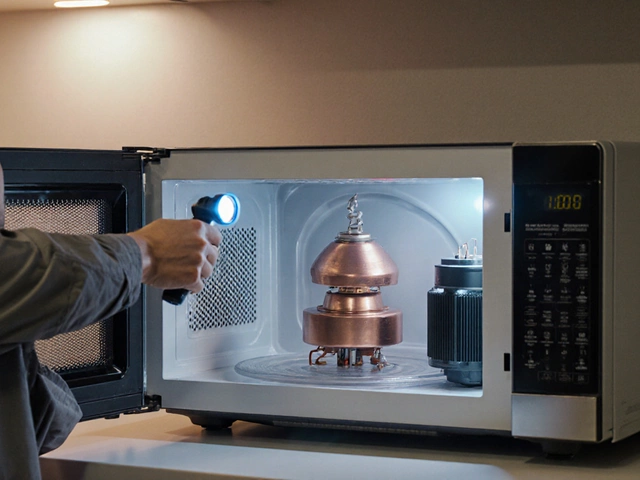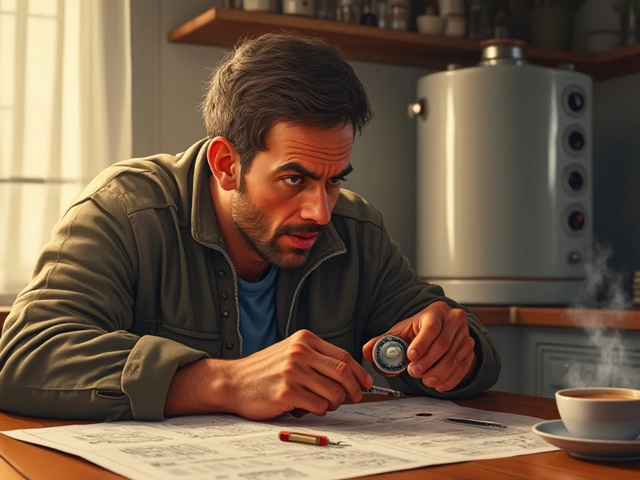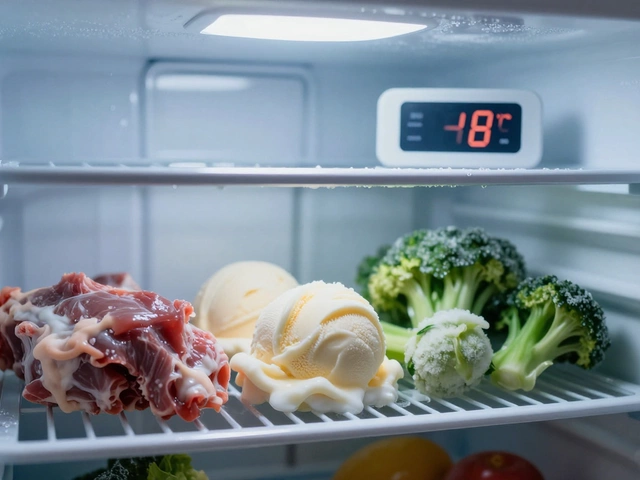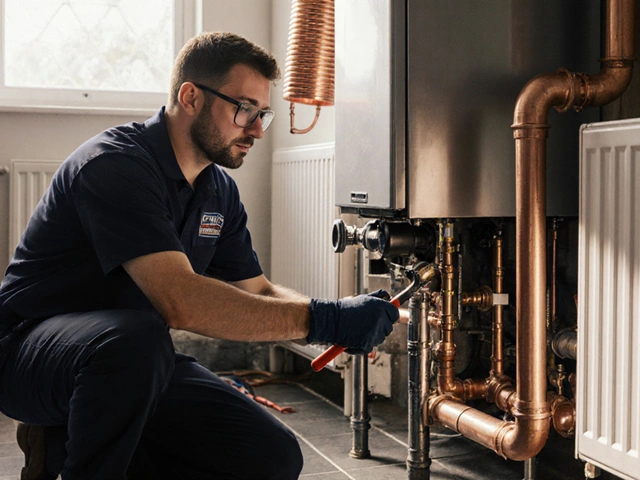Imagine waking up one morning to a freezing cold shower because your water heater decided to quit out of nowhere. Not exactly the best way to start your day, right? Most people have no clue how old their water heater is or if it’s even close to retirement. But ignoring the age and condition of your water heater is risky—you might end up with water leaks, expensive repairs, or no hot water at all.
The truth is, water heaters aren’t built to last forever. On average, they stick around for about 8 to 12 years, but there’s a lot that can change that number. The type of water heater you have, how hard your water is, and even how often you use it all play major roles in how long it’ll last. Knowing what to expect can save you cash and hassle down the road.
Let’s break down exactly how long different types of water heaters are supposed to last, reasons why yours might check out early, and the telltale signs it’s about to fail. Plus, I’ll give you some handy tips on whether it’s smarter to patch it up or just get a new one. Trust me, it’s a lot easier to make these choices when you know what’s going on behind the scenes.
- Typical Lifespan of Different Water Heaters
- Why Some Water Heaters Live Longer Than Others
- Warning Signs Your Water Heater's on Its Last Leg
- Smart Choices: Repair or Replace?
Typical Lifespan of Different Water Heaters
If you’re asking yourself, “How long should a water heater last?” you’re not alone. Some folks get 15 years out of theirs, while others end up shopping for a replacement after just seven. The difference comes down to the type of heater sitting in your basement or garage. Here’s what you should know:
- Tank water heaters (the big, usually beige or white cylinders) are the most common in American homes. If you have one that heats with natural gas, you’re looking at about 8–12 years. Electric versions are a tad slower to wear out, usually stretching to 10–15 years.
- Tankless water heaters, also known as on-demand heaters, don’t store hot water—so they don’t rust out the same way tanks do. These can last a solid 15–20 years, sometimes more if you take care of regular maintenance like descaling.
- Heat pump (hybrid) water heaters are super-efficient but still look a lot like regular tanks. Their typical run? You’ll get about 10–15 years, assuming you keep the filter clean and get periodic checkups.
- Solar water heaters run off sunshine and usually last 10–20 years with the panels themselves holding up even longer. But you have to keep the antifreeze topped off and flush the system every year or two.
Here’s an at-a-glance table so you can compare:
| Type | Average Lifespan (Years) |
|---|---|
| Gas Tank | 8–12 |
| Electric Tank | 10–15 |
| Tankless | 15–20 |
| Heat Pump (Hybrid) | 10–15 |
| Solar | 10–20 |
So, wondering why these numbers aren’t written in stone? As the U.S. Department of Energy puts it:
“The actual life expectancy of your water heater depends on the quality of the unit, how well it was installed, the hardness of your water, and, most importantly, whether you did regular maintenance.”
It’s easy to forget about maintenance, but staying on top of little things really does make a difference. If your old water heater makes it past the 12-year mark (for tanks), you’re definitely getting your money’s worth. But if you’ve got a tankless and it’s only been 7 years, don’t panic—you’re not even halfway through its expected life yet.
Why Some Water Heaters Live Longer Than Others
Not all water heaters are created equal—some just outlast the rest. The first big factor is the type you have. Tankless models usually stick around the longest, often past 15 years, while traditional tank heaters usually call it quits around the 10-year mark. Electric heaters tend to last a bit longer than gas ones, since there are fewer parts that can burn out.
Daily habits and where you live matter, too. Hard water (full of minerals like calcium and magnesium) really takes a toll, causing scale buildup inside your tank or on heating elements. If you live in an area with hard water and never flush your tank, don’t expect it to last as long as the manual promises. Regular maintenance, like draining and flushing the tank once or twice a year, can actually double the life of your heater.
Quality matters right from the start. Cheaper heaters with thin steel or cheap plastic parts don’t last as long. Units with thick glass linings, better insulation, and heavy-duty anode rods will usually outlive the budget ones. Here’s a good rule: pay attention to the warranty. A six-year warranty probably means the manufacturer doesn’t expect the heater to see birthday number ten.
| Factor | Average Lifespan (Years) |
|---|---|
| Tankless heaters | 15-20 |
| Electric tank heaters | 10-15 |
| Gas tank heaters | 8-12 |
Maintenance isn’t just a suggestion. According to the Department of Energy, "Flushing your water heater tank at least once a year can significantly extend its life and maintain efficiency."
"A well-maintained water heater can easily last years beyond its warranty period, while neglected units often fail much sooner." — HomeAdvisor 2024 Report
All in all, if you want your water heater lifespan to hit the high end, take care of it, buy a good one up front, and watch for signs of trouble. Skipping on quality or ignoring mineral buildup usually means an early trip to the scrap yard.
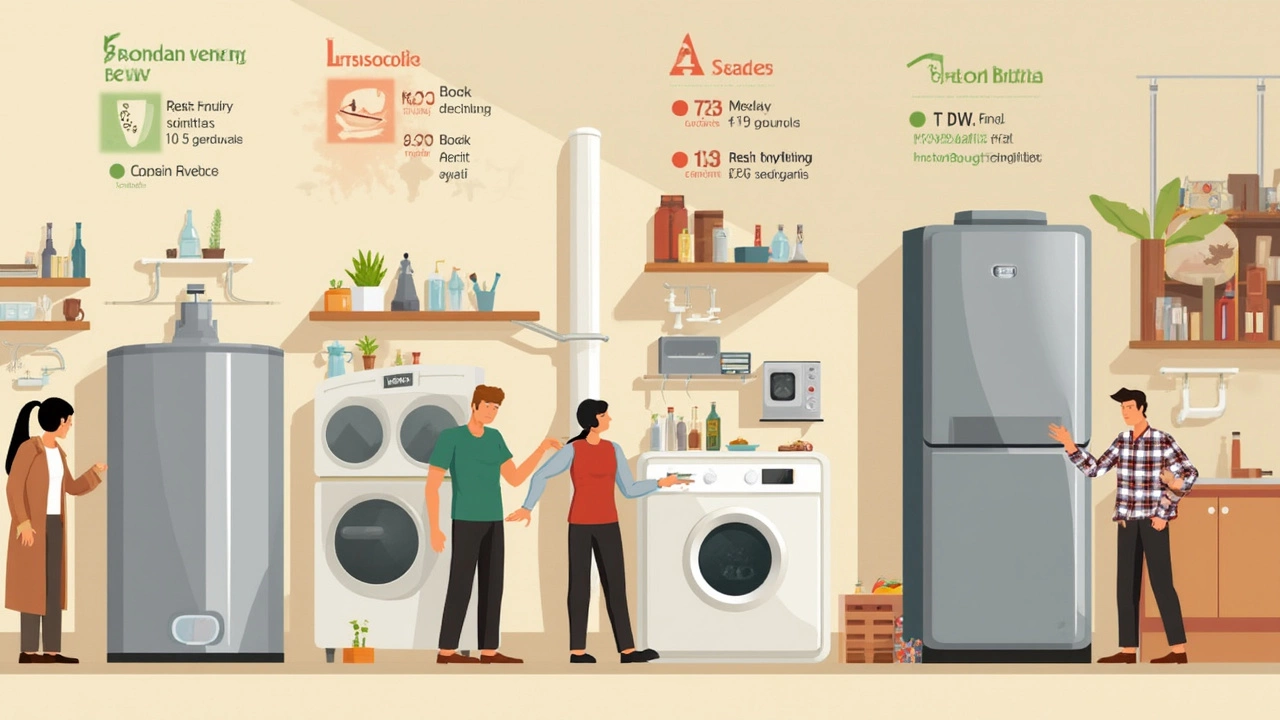
Warning Signs Your Water Heater's on Its Last Leg
Water heaters always send signals before they finally call it quits. Ignore them, and you could be looking at leaks, cold showers, or water seeping through your floorboards. Here’s what you should look out for if you don’t want to end up in a mess.
- Rusty or discolored water – If you turn on your hot tap and rusty or brown water comes out, your heater’s tank might be corroding from the inside. Sometimes it’s just sediment, but a lot of times, it means the tank is on its way out.
- Strange noises – Hearing popping, rumbling, or banging sounds? That’s usually scale buildup in the tank. Over time, it gets thicker, makes the heater less efficient, and cracks the metal inside. If your heater sounds like it’s boiling rocks, don’t ignore it.
- Water around the base – Any puddles or moisture near the bottom of the heater mean trouble. Leaks often start small but can turn into real damage fast. A leaking tank usually means replacement, not repair.
- Not getting enough hot water – If your showers are going cold quicker than they used to, it’s a big sign. Smaller quantities of hot water, especially if it happens suddenly, often point to a failing heating element or an aging tank.
- Heater’s over 10 years old – Water heaters aren’t immortal. If yours is pushing a decade, it’s more at risk for failure, even if it seems fine now.
| Warning Sign | What It Means |
|---|---|
| Rusty Water | Possible tank corrosion |
| Noises | Scale buildup inside tank |
| Puddles/Leaking | Tank failure likely soon |
| Inconsistent Temperature | Elements or thermostat failing |
| Age over 10 Years | Increased risk of total breakdown |
One more thing—check your water heater’s serial number for the manufacturing date if you’re unsure of the age. Brands hide that info in the numbers, but a quick search of the brand and serial number will tell you how old your unit is. Seeing any of these problems? It’s probably time to call in a pro for a water heater repair or even start shopping for a new one.
Smart Choices: Repair or Replace?
This is the real question when your hot water goes wonky. Should you fix what you have, or just get a new water heater before things get messy? Here’s what matters: age, cost of the fix, performance, and your own patience.
If your water heater is over 10 years old, you already got most of its expected life. At this point, even a repair is kind of like putting duct tape on a shaky lawn chair. Parts keep failing, and the bills just add up. Industry data shows that water heaters over a decade old are way more likely to develop leaks or stop heating properly.
Think about cost next. Here’s a good rule of thumb: if the repair bill is more than half the price of a new unit, go for replacement. For reference, a standard tank water heater replacement costs about $1,100 on average (including installation), while basic repairs like replacing a thermostat or heating element usually run $150-$350. When corrosion hits the tank or you see serious leaks, repair is almost never worth it. Time for a new one.
| Problem | Typical Repair Cost | Replace Instead? |
|---|---|---|
| Heating Element | $150–$300 | No, unless unit is water heater lifespan is over 10 years |
| Thermostat | $100–$200 | No, unless tank is old |
| Tank Leak | Not Repairable | Yes, replace |
| Gas Valve | $150–$500 | Maybe, depends on age |
Don’t forget performance. If your hot water runs out faster than it used to, or it’s not getting hot enough even after repairs, it probably won’t get better. Upgrading to a newer model can also mean better energy efficiency, lower utility bills, and even longer warranties (some tankless water heaters can last 15+ years if maintained).
- Always check the warranty before you decide. Repairs might be free if you’re still covered.
- Weigh safety too: an aging, unreliable water heater risks flooding or water damage—far pricier than just swapping it out.
- If you notice rust-colored water, that’s usually a sign your tank is breaking down from the inside. Replacement is your only real long-term fix.
The bottom line? For anything major on an old tank, it makes more sense to invest in a new water heater. For basic and cheap repairs, on a unit that’s not up in years, fixing it can buy you more time.

